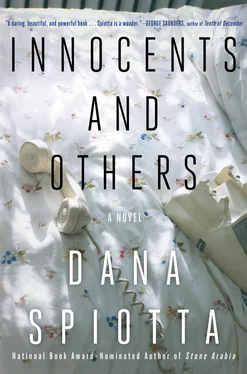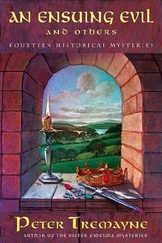Jelly turning him down did not seem to bother or discourage him at all. Oz was always comfortable, always easy, which was unnerving and oddly seductive. And the next time she was at session, he asked her out again. She wanted to say yes, to date Oz and spend time with Oz and get close to Oz, but she hesitated for what she knew were stupid reasons. She was worried his blindness would make her even more ridiculous. She was on the continuum of blindness: a meningitis infection had nearly killed her and made her blind overnight, but then, slowly, she had recovered some sight. She could see shapes and light and colors, but her blurry vision was also tunneled to 90 degrees, which made getting around without the help of a cane difficult, although she tried anyway. Imagining the way two blind people would look walking down the street wasn’t the only thing. Oz had no sight at all, never did. That was a different planet, “never sighted.” There was something unbridgeable in it. But that was such a ridiculous idea, as if any human experience couldn’t be bridged. How to build the bridge? You talk about it and find the things you understand in it. The pieces of your own experience in the other. That’s the bridge, she thought. “Yes,” she said. “I would love that.”
She went over to Oz’s apartment. They ate dinner, and Oz put on the promised John Coltrane LP, which sounded mystical and less romantic than she expected. He smoked a joint, which he assured her helped to make the Love Supreme, helped you hear the holiness in it, the God sounds in it, but she declined. “I’m nervous about getting home,” she said.
“So sleep here,” he said. She laughed. “What’s so funny? It’s cool.”
“I know,” she said. She made a loud exhale sound. “Does it get easier? I mean, I don’t like to move from place to place. I could be a shut-in, I think.”
“Girl, is this a group session?” he said, laughing. “Are there a bunch of weepy blind folks here?”
“I’m sorry,” she said.
“Just relax. You are safe. Crash on the couch and you will have all day to get home tomorrow.”
“Okay,” she said.
She slept on the couch. Oz didn’t offer his bed or even kiss her, which surprised her. She decided that although he was not handsome, he had a solidity that she wanted. He was all in one place, while she felt blurry most of the time. She was glad to sleep there and leave in the morning. The daylight was better for her — she needed contrast. For Oz it didn’t matter. The dark was as safe a place as the light.
She asked him over to her place for their second date. She realized an apartment he didn’t know would be more awkward for him, but he and the dog quickly found the chair at her little table. She brought him a glass of wine.
“Would you like to hear some music?” she asked.
“I would,” he said. She put on Blue Train , which she had bought earlier that day. The record store clerk handed it to her when she asked what Coltrane album she should buy.
Right away Oz said, “I love this record,” and she could hear the smile in his voice. They smoked some pot and drank some wine. They drank their glasses quickly and she poured more and then started to serve dinner. She realized how much she wanted to talk with Oz, to hear him talk about his life. Was blindness easier on people who never saw? How would Oz or anyone know? What were his dreams like, what were his thoughts when colors were mentioned? Could she ask him or would he just laugh her questions off? Girl, you ask too many questions. The wine made her brave.
“This is maybe too personal,” she said, and the word personal sounded funny to her. A question about your personhood, your experience as a person. “But when did you realize you were blind? I mean, what blindness is, and that most other people are not blind. Do you remember?” Jelly said this as they ate spaghetti and a slow-cooked sauce that filled the air with basil, tomato, and almost-burned garlic. She had grown the tomatoes on her porch, on scaffolds and ties. More than the tomatoes themselves, she loved the tomato leaves in the early summer. She would water the plants and put her head close. She would inhale the burst of damp leaf with the faint tomato coming off it. A promise of fruit, the green bulbs just starting. As the summer progressed the smell grew more and more pungent. Sometimes she tore a leaf from the plant and took it inside her apartment so she could hold it to her nose and inhale. It relaxed her — such a fresh and earthy smell. How can something so new seem so deep? She knew Oz would appreciate the smell and the taste.
But Oz was not as interested in the food as she expected, as she was.
He was silent, and she was about to say that he didn’t have to tell her or talk about this if he didn’t want to. She was still figuring things all out, so she thought about it a lot. But instead of saying anything, she let her question hang in the space between them. She ate a bite of the spaghetti. She waited. At last Oz leaned in a little and she heard him let out a long breath.
“My mother,” he said slowly, “my Italian mother made me the center of her world. My father was not around, and I was with her constantly. She talked to me, sang to me, and read to me all the time. That was how I learned what blindness was — from the books. We would read about what the little bear saw, and I would ask what that meant. She would try to explain. ‘Some people can get the shape of something without touching it.’ She didn’t overdo it. She didn’t tell me more than I needed. She would read a thing and then let me feel it. I didn’t mind. At a certain point, she revealed that ‘some’ people were actually ‘most’ people.”
Oz put his hand on hers. This was not an overtly sexual gesture. It was that being together and not seeing meant more touching, more body communication. The usual way Oz talked — affectedly easy, slangy, slightly stoned — seemed to fall away as he spoke. She knew that meant something. His voice was soft and low, so she had to lean in to hear him.
“But the big boom for me, the first fall in my life was not that I was missing this thing that most others had, but when I asked the question that she had avoided. It took me longer than you might have guessed for me to think to ask this, but it is hard to imagine your mother as really separate from you. It takes time, it takes a moment — a number of moments — of frustration when she doesn’t understand you to even imagine that she is not part of you. That she isn’t you.” Jelly listened very carefully, but he hesitated, stopped telling her the story.
She watched the white blur of Oz pick up his wineglass and take a swallow. Wine was sour and red wine made your lips pucker and feel like they had an edge to them. Red wine found rough surfaces and emphasized them. A crack or dry spot on your lips, patchiness on the surface of your tongue. It surprised her that she was thinking of his mouth and what it would be like to kiss him. She didn’t think she felt attracted to him, not yet, but she kept imagining this kiss. Their mouths would both be rough and sour from wine.
She could have said, “What happened?” or “Then what?” But her instinct told her to wait. She knew that would give him room to talk. She should not — could not — rush him.
“One day,” Oz said at last, “I sat on her lap as she read. I could feel the words vibrate in her chest, and I felt the smooth pages in front of us. I realized that she got the stories from the page, the smooth pages that gave me nothing. I guess I had known that for a while. But now it all came together. I interrupted her, ‘But Mama, can you see?’ and she had to admit that, yes, she could see. She was not like me, and I was not like her. I was blind, and she was not.”
Читать дальше












